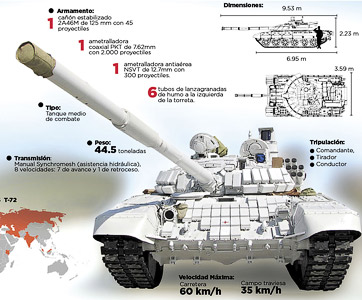The Nicaragua Canal, Russian Tanks, and US Spies
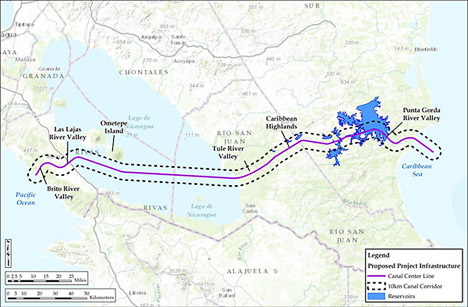
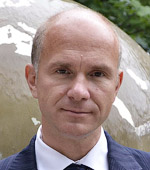 Also deported from the country was Evan Ellis, a professor at the US Army War College, who had arrived in Nicaragua at the same time as the «inspectors» and, like them, had been staying at the Hilton Princess hotel. Judging by the number of his published papers, Ellis’s level of academic productivity is unusually high. His research, which usually employs the confrontational terminology of the Cold War, primarily focuses on the inroads made by China and Russia into Latin American and Caribbean countries.
Also deported from the country was Evan Ellis, a professor at the US Army War College, who had arrived in Nicaragua at the same time as the «inspectors» and, like them, had been staying at the Hilton Princess hotel. Judging by the number of his published papers, Ellis’s level of academic productivity is unusually high. His research, which usually employs the confrontational terminology of the Cold War, primarily focuses on the inroads made by China and Russia into Latin American and Caribbean countries.
In Nicaragua, Ellis was interested in the transoceanic canal being built there. The professor claims to have prepared for his visit to Managua as a private citizen and that he held preliminary discussions of the schedule for his trip with Nicaragua’s ambassador to the United States, the chairman of the Grand Canal Authority – Manuel Coronel Kautz, and a number of other relevant Nicaraguan officials. Meetings were planned with government functionaries, businessmen, diplomats, journalists, and social activists for the purpose of gathering information about the canal.
However, the professor did not even manage to stay in Nicaragua for 24 hours. Before being deported, Ellis had only time to visit an exhibition of photos sponsored by the National Council for the Defense of the Land, Lake, and Sovereignty – an NGO that is protesting the construction of the canal. That very evening, immigration agents came to Ellis’s hotel room and informed him that since he did not have official permission to conduct an investigation of the transoceanic canal he must leave the country immediately. The American ended up on the next flight to the US.
After his expulsion, Ellis lost his temper and sounded off on the Internet. His accusations all echoed Washington’s position, which is hostile to the construction of the Nicaragua Canal, a likely competitor to the one in Panama that is unofficially under US control.
Ellis is primarily questioning the feasibility of the project, stating that «the Nicaraguan government has managed the canal project behind a cloak of secrecy, possibly to conceal the personal benefits accruing to those involved on the Nicaraguan side».
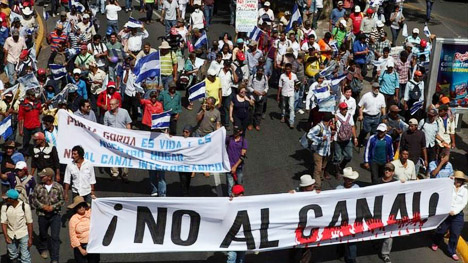
To Ellis, the deportation of the US diplomats is an indication that the «strategy of constructive, respectful engagement with the Nicaraguan regime is not working». Therefore, on the eve of the November elections in Nicaragua, the US administration «has both the right and the moral obligation to work with civil society groups to advance meaningful democracy». For Ellis, the refusal to allow observers from the US government or the Carter Center to monitor the elections in Nicaragua is an act that «undermines democracy». So now he calls for the United States to intervene in order to prevent Nicaragua from ultimately degenerating into a «Venezuela-style» authoritarian regime. Pointing to the possible «criminal behavior» of Nicaragua’s leaders, Ellis cites the need for them to be continuously monitored by US law enforcement agencies. His report includes some threatening overtones: «Those connected to transnational organized crime, or enriching themselves at the expense of the Nicaraguan people, will not escape justice to live with their ill-gotten gains once they leave office».
There is a good reason that Ellis is proposing this sort of oversight: the Sandinista leaders are an unending irritant for the Obama administration. It is common knowledge that US intelligence services conduct intensive surveillance of Daniel Ortega. But he takes a blasé attitude toward this – as Hugo Chávez once did – because he has neither secret foreign accounts nor kleptocratic inclinations. Another motive for the attack on «Ortega’s regime» is Nicaragua’s military and technical cooperation with Russia. This is another area where Ellis stresses the need for continued vigilance. For example, the Marshal Zhukov Training Center: what is its actual purpose? Is it merely being used to train army servicemen? Or another example – the shipment of two missile boats and four patrol cutters to Nicaragua. Why so many? Russia has clearly launched an arms race of unprecedented magnitude in the waters of the Caribbean Sea and the Pacific Ocean! Ellis is also concerned about deliveries of updated T-72B1 tanks to Nicaragua.
Twenty arrived in the first shipment, and Nicaraguan tank operators can expect a total of 50 armored vehicles by the end of the year. Ellis recommends working more actively with Nicaragua’s neighbors like Costa Rica. It is not entirely clear what the American professor is specifically referring to in this instance. Does he mean helping the traditionally peace-loving nation of Costa Rica to develop a full-scale standing army? Or building the Pentagon’s next military base within that country?
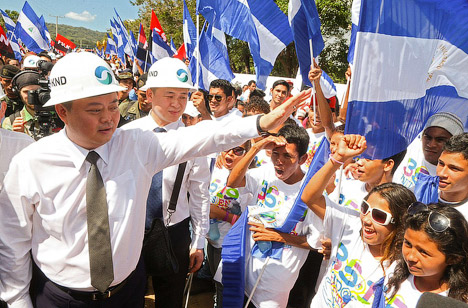
Last December the work on Nicaragua’s transoceanic canal was suspended until August of this year. The postponement was precipitated by the financial difficulties of the primary contractor, a Hong Kong-based consortium known as HK Nicaragua Canal Development Investment Co. Ellis notes that this mega-project has not progressed very far since the construction of the initial infrastructure began: two deepwater ports have not been built, nor have the warehouses or factories to produce the construction materials, the completion of which was scheduled for April 2016. In addition, environmental NGOs are working ever more vigorously, encouraged by the Americans to egg on the protests by farmers who are suddenly distressed about the clear-cutting of the forests near Lake Nicaragua and the Brito and Las Lajas rivers.
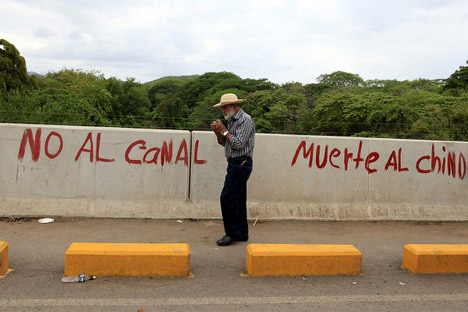
With the assistance of experts like Ellis, the pro-American media is trying to persuade Nicaraguans that the canal is «Sandinista propaganda» and its construction dauntingly complex. For the same reason, the US mass media, as well as the Latin American media under American control, give prominence to their coverage of the efforts to update the Panama Canal. The leitmotif is clear: no alternative canals are needed in the Western hemisphere because the one in Panama is capable of «solving almost all the problems» of Asian-US trade, which includes the capacity to accept ships up to 14,000 TEU. Then the corresponding picture pops up: the Cosco Shipping Panama, a Chinese container ship that has successfully navigated through the new locks of the Panama Canal.
On the eve of the Nicaraguan elections, Washington is doing all it can to undermine the position of Daniel Ortega, who has once again been nominated for the presidency by the Sandinista National Liberation Front party. This explains why all sorts of emissaries and experts are being dispatched to that country.
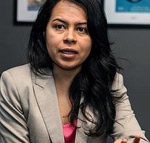 Nicaragua’s fifth column is isolated and needs support. And the citizens of Latin American countries are often used to provide this support. For example, Viridiana Ríos, a Mexican staffer with the Wilson Center in Washington, DC, fled Nicaragua in panic after the Americans were deported because she felt she was being followed. She claims to have been gathering information about the issues of public safety and violence. Several of her studies are being used by the CIA, DEA, and FBI, so she did have some cause for her panic and subsequent flight. A group of Latin American student environmentalists who were detained in southern Nicaragua were also at the center of some suspicious incidents. Apparently, these «environmentalists» were teaching the native Indians how to use explosives.
Nicaragua’s fifth column is isolated and needs support. And the citizens of Latin American countries are often used to provide this support. For example, Viridiana Ríos, a Mexican staffer with the Wilson Center in Washington, DC, fled Nicaragua in panic after the Americans were deported because she felt she was being followed. She claims to have been gathering information about the issues of public safety and violence. Several of her studies are being used by the CIA, DEA, and FBI, so she did have some cause for her panic and subsequent flight. A group of Latin American student environmentalists who were detained in southern Nicaragua were also at the center of some suspicious incidents. Apparently, these «environmentalists» were teaching the native Indians how to use explosives.
The expulsion of these foreign provocateurs is a sign that the Sandinistas will not permit the destabilization of their country. Hence the hysterical campaign in the international media about «Ortega’s dictatorship».
Nicaragua’s socioeconomic progress, Nicaraguans’ improved standard of living, and the stability and security there (compared to the increase in crime in most Central American countries) can all largely be credited to President Ortega. He is a faithful defender of Nicaragua’s interests on the international stage and enjoys the support of the vast majority of Nicaraguans. This is why the subversive activities of the US intelligence services and their «strategy of chaos» will not work in Nicaragua.
